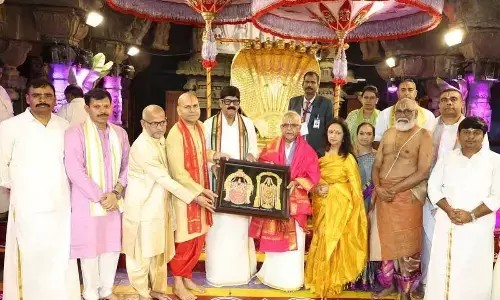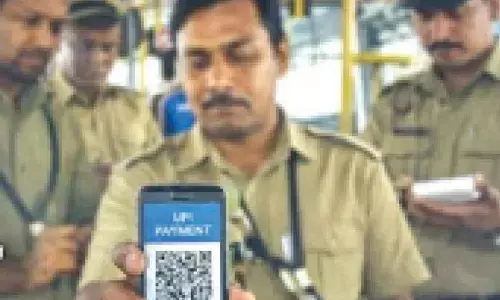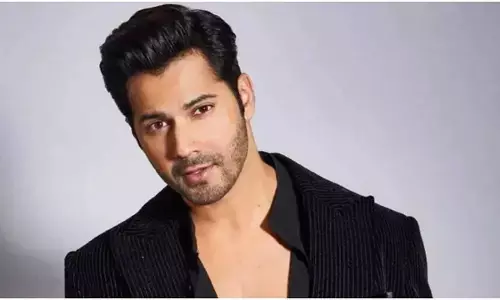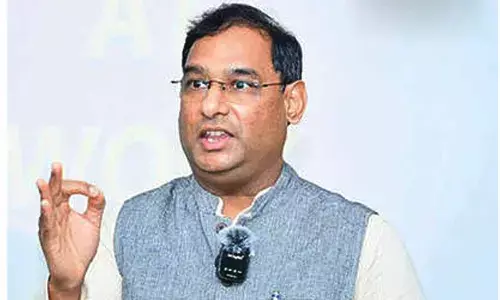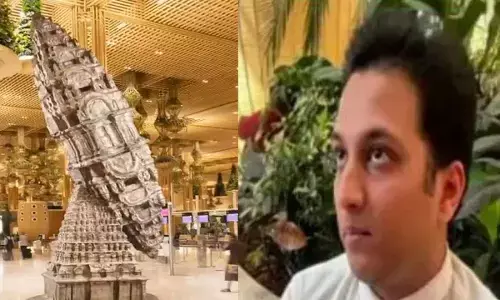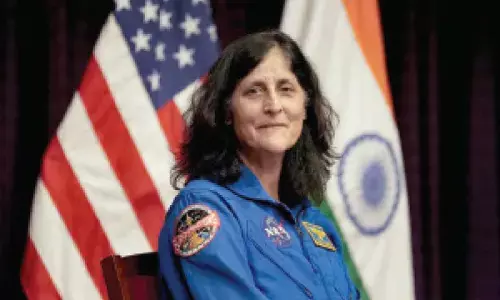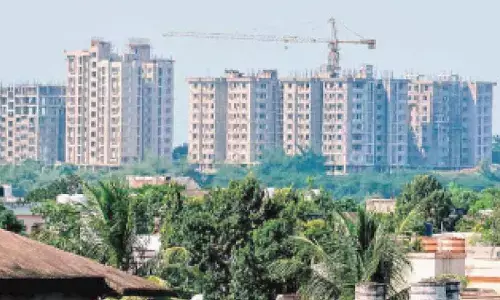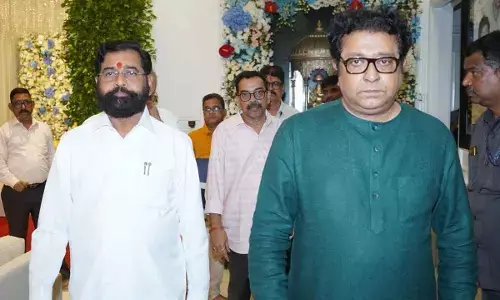For a strong democratic India
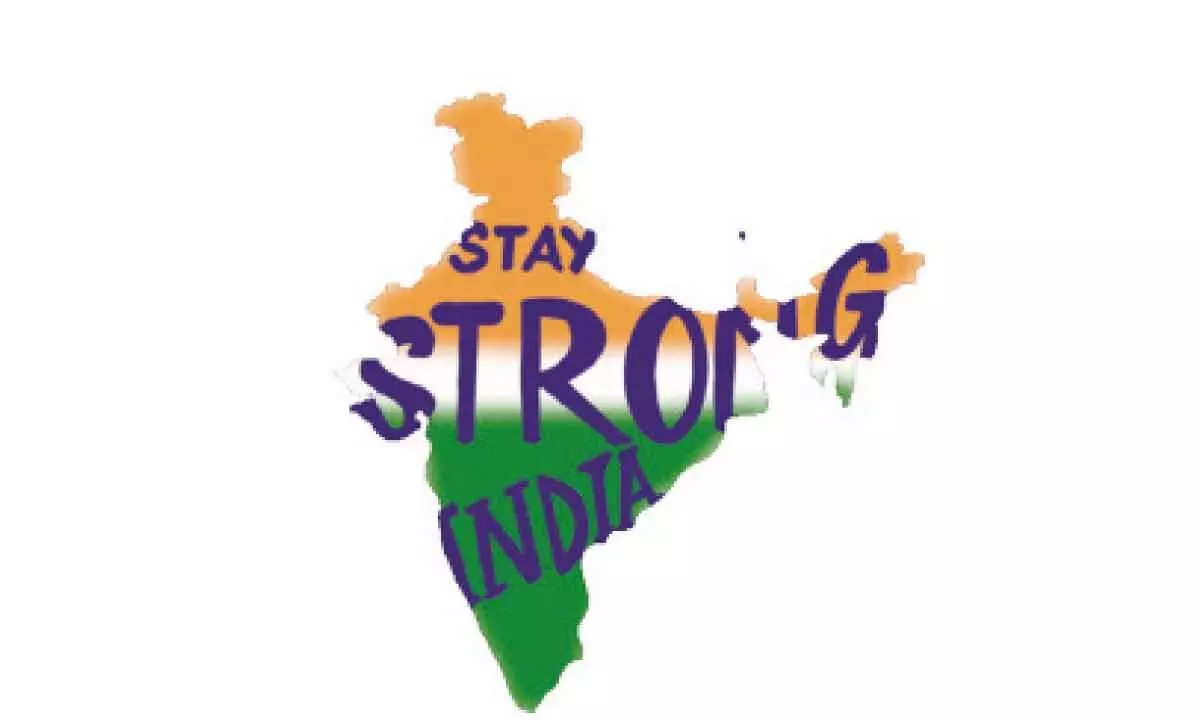
The present polemics of some religious leaders can sow the seeds of conflict between Islam and other religions and indirectly provide a fillip to the trend of faith-based militancy that is threatening the entire democratic world today. Religion should not get mixed up with politics and should not come in the way of the evolution of national values that sustained a democratic country
To the narrative being built against the present regime by some civil society groups practising 'politics by proxy,' a distorted projection of 'nationalism' in the Indian context is a more recent addition. There is a deliberate propaganda that nationalism here is the same as 'Hindu nationalism,' that invoking nationalism is at the cost of the Muslim minority and that the history of India did not support the construct that India should claim to be a 'nation'.
This lobby supported by anti-India forces abroad, makes the word nationalism look like a disparaging concept, runs down the basic precept of 'one man one vote' on which Indian democracy is founded by raising the bogey of 'majoritarianism' and implicitly justifies the dangerous idea – despite the experience of the Partition – that multiple religious and regional communities of India should not be deemed to be part of common nationhood.
The adult franchise is the fundamental political right, and the availability of the same opportunities and protection of law guarantees the socio-economic equality of all citizens so long as the elected political executive does not carry a denominational or ideological stamp on governance - unlike what happened in an Islamic Republic or a Marxist dictatorship next door. A denial of India being a nation is only a part of the game being deliberately played to weaken this country.
The first requirement of internal cohesion or national security is that all citizens should take pride in being part of the same nation and whatever be the historical legacies of the past, should have a certain convergence on who the friends and adversaries of India were in the present and how should the country progress in the times ahead.
Some historians preferring to be a slave of their 'expertise' on what India was in its checkered past, highlight some defeats and internal discords of a gone-by period, to negate the hope that India was in the present destined to become a glorious nation of newly defined geographical boundaries.
In the process, they continue to 'cut the nose to spite the face' by constantly harping on the state of the multiplicity of kingdoms existing in India before Islam came here to bring in a large territory under the Mughal Emperor.
They like to argue that Hindus and Muslims had unitedly fought for freedom from the British and had a shared sense of nationhood - conveniently forgetting the reality that the Independence of India ultimately came with the heavy price of a vertical division of the country on grounds of religion forced by the Muslim leadership and that an unprecedented massacre of people took place in the communal riots caused by that event.
The learning that was there for independent India was to make the country a secular republic by looking upon the people of India as being part of one nation that would be governed based on 'one man one vote' without allowing any religious identity to be projected in politics.
The first governments of the country, however, interpreted secularism as a license to continue with 'minority politics' in the name of 'cultural diversity' and did not build the concept of 'nationhood' based on civilisational pride, shared perception of who the 'friends and adversaries' of India were and steady progress towards the Constitutional mandate of establishing a common criminal and civil law for all Indian citizens.
The divisions among Indians developed not on political ideology but on community identity with even the Socialist movement in the country highlighting caste by making 'anti-Brahmanism' its core political idea. Soon realpolitik came into play and the secular parties steadily fell for wooing the Muslim vote bank for its numbers in the election.
The Republic of India gradually lost its punch in dealing with the Islamic Republic next door from a position of superiority in terms of representing a newly united country with shared values of nationhood. In fact, India ended up in a situation where Pakistan began openly flaunting its right to speak for India's Muslim 'minority' - ironically today there are more Muslims in India than what was their number in Pakistan.
In India the political management of Muslims as a community is still in the hands of Ulema and communally-minded Muslim elite – they kept up minority separatism even after Independence for their vested interests and have in recent times, gone to the extent of refusing to name Pakistan for using faith-based militancy as an instrument of cross border terrorism against India. However, it is also to be mentioned that the average member of the minority community wanted – like citizens of other communities – to live peacefully, devoting to matters of livelihood and family welfare.
The leadership of the community has traditionally comprised of the Asharaf – who considered themselves to be of a separate class as the descendants of those who came from outside – while the bulk of Muslims in terms of history were the Ajlaf or local converts a majority of whom were drawn from among the poor and the weak in the Hindu population.
Conversion to Islam in many cases happened under the influence of Sufis whose singing at the graves of Peers called Sama culturally appealed to these Hindus.
The familiar Tabligh movement in India had been concentrating –though in a non-political way – on freeing the Muslim masses of such 'un-Islamic' practices and thus pushing the community towards fundamentalism. This potentially enlarged the base for extremism and radicalisation.
Reaching out to the Ajlaf for strengthening the cause of nationalism in India stands to reason. Moreover, Madrasahs can be encouraged to voluntarily get listed for possible government aid that would be given after a scrutiny of the curriculum. This will be in line with the non-discriminatory approach of a democratic state to primary education.
The Indian scene offers possibilities of a significant section of Muslims being brought around to accepting national values and culture while retaining their faith and right to worship. The Hindu outreach to them can help the process of enhancing the internal cohesion of the nation.
A nation is internally strong when all its communities live in harmony, respect each other's faith and do not flaunt claims of superiority over others on grounds of religion, race or class.
The present polemics of Jamiat leaders can sow the seeds of conflict between Islam and other religions and indirectly provide a fillip to the trend of faith-based militancy that is threatening the entire democratic world today. Religion should not get mixed up with politics and should not come in the way of the evolution of national values that sustained a democratic country.
At a time when India is exposed to concerted efforts of adversaries, hostile lobbies and sections of political opposition project the country as a divided nation falling for 'majoritarianism' and the present regime as a violator of human rights that had put minorities in jeopardy. Threats to national unity and internal cohesion – rather than the fear of an external attack – have become serious and real.
India needs a uniform level of policing and law & order control throughout the country, an Intelligence set up that could detect anti-national activity operating under the cover of civil society groups or otherwise, on dubious funding and a programme of keeping communities in the national mainstream by weaning them away from the handful of extremists and radical elements trying to politically control them.
Internal cohesion, inter-faith harmony and convergence of citizens on nationalism are the prerequisites of a strong democratic India that aspired to lead initiatives for both improving the global economy and making the world a safer place in course of its G20 Presidency.
(The writer is a former Director of the Intelligence Bureau. Views expressed are personal)








